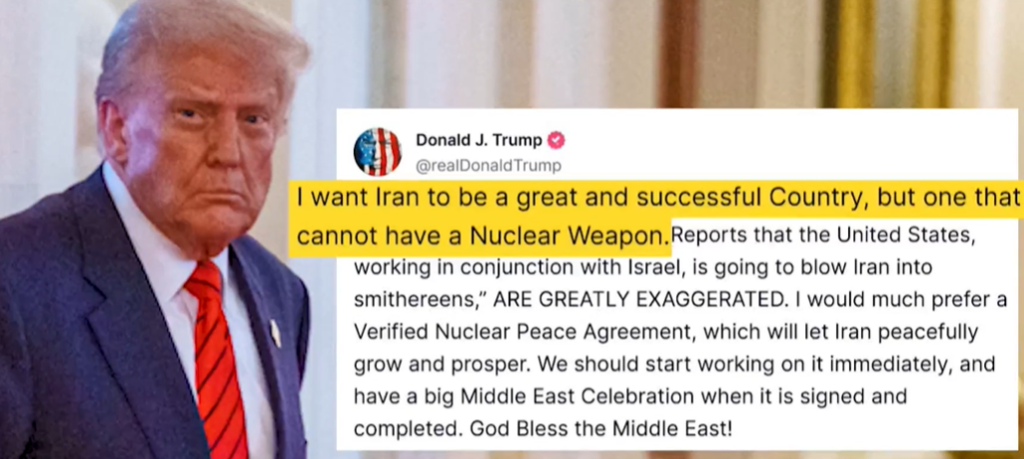6 February, 2025; In a bold and unexpected move, US President Donald Trump has expressed his desire to strike a “nuclear peace agreement” with Iran, signaling a shift in the US approach to one of the most contentious issues in international relations today. Speaking on the matter, Trump highlighted his aspiration for Iran to achieve greatness and success, emphasizing that the future of the Middle East and the wider world could benefit from such a deal.

This proposal, which stands in contrast to the traditional diplomatic methods employed by previous administrations, especially concerning the Iran nuclear deal, could have profound implications for US-Iran relations and global geopolitics. President Trump’s willingness to engage with Iran in such a manner is seen as a departure from his earlier stance of maximum pressure and sanctions that were intended to isolate the Iranian government.
Trump’s vision of a “nuclear peace agreement” seeks to replace the framework established under the Obama administration’s Joint Comprehensive Plan of Action (JCPOA) or the Iran nuclear deal. The deal, which was signed in 2015, aimed to curb Iran’s nuclear capabilities in exchange for relief from international sanctions. However, under Trump’s leadership, the US withdrew from the JCPOA in 2018, claiming the agreement was flawed and failed to address broader security concerns, including Iran’s regional influence and missile program.
The idea of a new, potentially more expansive agreement seems to take a more optimistic approach to resolving the nuclear standoff with Iran. Trump’s suggestion that such a deal could benefit not only the US but also the Iranian people is a departure from the adversarial tone that has defined much of his foreign policy towards Tehran. By framing the proposal as an opportunity for Iran to “become great and successful,” Trump may be signaling his intention to engage diplomatically, rather than continuing the path of sanctions and hostility.
However, experts and critics have raised concerns about the practicality and implications of such a proposal. They point to the deep mistrust that exists between the US and Iran, especially following years of escalating tensions, economic sanctions, and military confrontations in the region. Moreover, there are questions about how such a deal would differ from the previous nuclear agreement, and whether Iran would be willing to negotiate under new terms, especially after the US unilaterally abandoned the JCPOA.
Iran’s leadership has historically been skeptical of engaging with the US, particularly under the Trump administration, which has imposed crippling sanctions and designated Iran as a state sponsor of terrorism. The chances of a successful nuclear peace deal will depend on whether both parties can find common ground on issues such as Iran’s nuclear enrichment, missile development, and its involvement in regional conflicts.
Nevertheless, Trump’s proposal does present a new opportunity for dialogue and perhaps a rethinking of how to handle the Iran nuclear issue. While it remains to be seen how this initiative will unfold, it is clear that the US president is exploring unconventional avenues to secure what he perceives as a more favorable outcome for both his country and Iran.
Ultimately, a nuclear peace deal with Iran would not only reshape the landscape of US-Iran relations but also have significant ramifications for international security and stability in the Middle East. As the world watches closely, it is clear that the path forward will require careful negotiation, trust-building, and, most crucially, a commitment to finding a long-term, peaceful resolution to the nuclear crisis.


